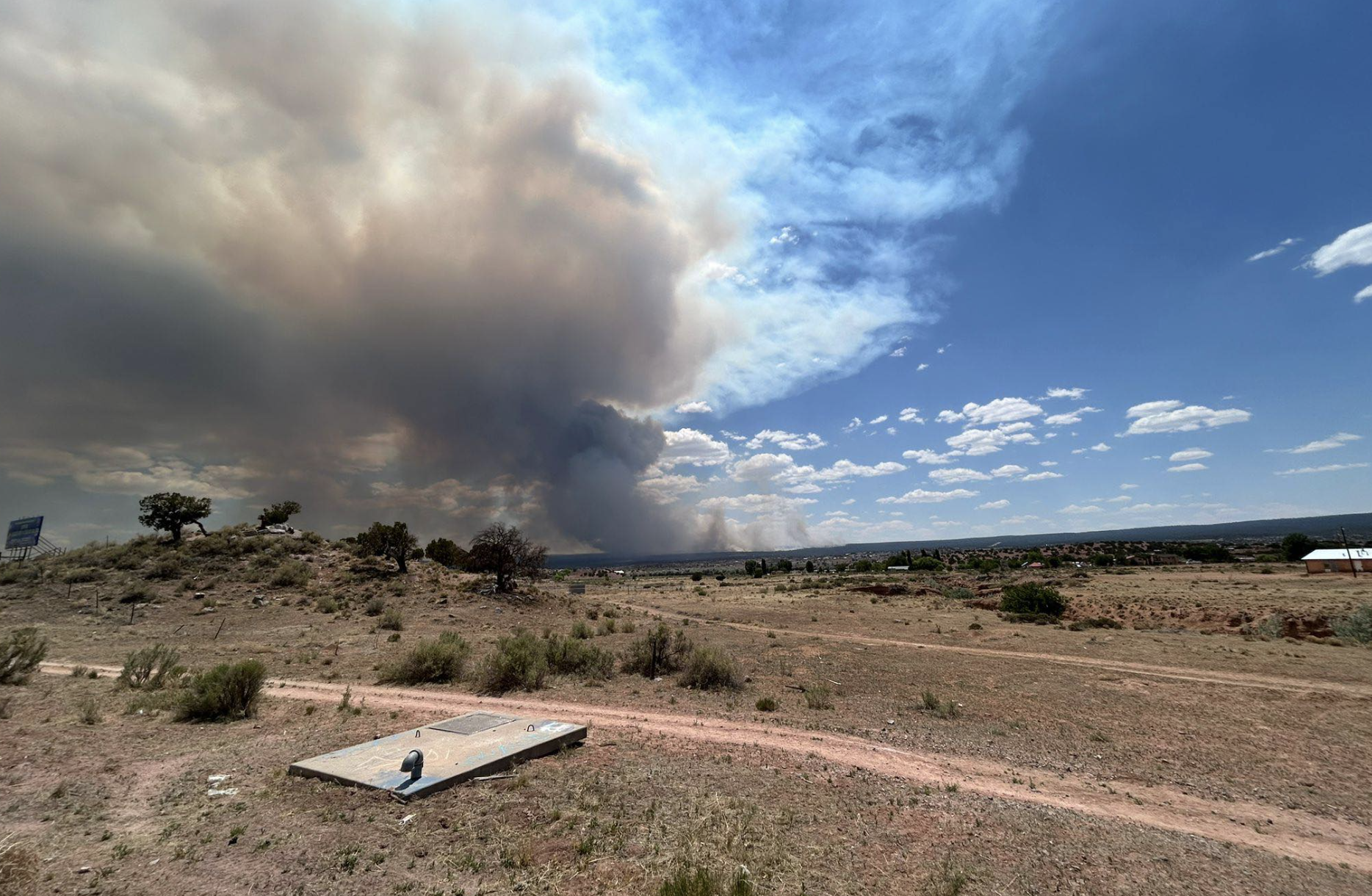
- Details
- By Patrick Lohmann, Source New Mexico
A wildfire that erupted over the weekend on the Navajo Nation near the New Mexico border has grown to more than 6,200 acres, according to the latest updates.
This story was originally published in Source New Mexico.
The Oak Springs fire began Saturday a few miles southwest of Saint Michaels, Ariz. and cast smoke throughout much of the area over the weekend, including nearby Gallup. Navajo Nation President Buu Nygren, in updates posted on social media, said wood haulers in the area may have started the fire, though its cause is still officially under investigation.
More than 400 people have responded to the fast-growing wildfire, which is 0% contained. On Monday, in response to the rapid fire spread, a complex incident management team took over the fire, according to the Bureau of Indian Affairs.
The Navajo Nation is ordering people in Hunter’s Point and Oak Springs west of mile marker 12 on Navajo Route 12 to flee, along with Saint Michaels’ residents along roads 603, 604, 605 and Navajo Telecommunications Road. An evacuation center is housed at the Window Rock Fighting Scouts Event Center on Navajo Route 12 south of Window Rock High School.
According to Nygren, 23 people sought shelter at the events center on Monday morning.
The fire is the biggest on the Navajo Nation since June 2020, according to a Source review of National Interagency Fire Center records, and is already the second-biggest in more than a decade. The biggest fire, the Wood Springs 2 Fire, burned about 20 miles north of the Oak Springs Fire, consuming more than 12,000 acres.
Crews assigned to the Oak Springs fire are prioritizing protecting the town of Saint Michaels, the corridor along highway 12, including homes and pipelines.
A public meeting will be held at 6 p.m. Monday night at the Fighting Scouts Field House, according to a news release. It will also be streamed on this Facebook page.
Help us defend tribal sovereignty.
At Native News Online, our mission is rooted in telling the stories that strengthen sovereignty and uplift Indigenous voices — not just at year’s end, but every single day.
Because of your generosity last year, we were able to keep our reporters on the ground in tribal communities, at national gatherings and in the halls of Congress — covering the issues that matter most to Indian Country: sovereignty, culture, education, health and economic opportunity.
That support sustained us through a tough year in 2025. Now, as we look to the year ahead, we need your help right now to ensure warrior journalism remains strong — reporting that defends tribal sovereignty, amplifies Native truth, and holds power accountable.
 The stakes couldn't be higher. Your support keeps Native voices heard, Native stories told and Native sovereignty defended.
The stakes couldn't be higher. Your support keeps Native voices heard, Native stories told and Native sovereignty defended.
Stand with Warrior Journalism today.
Levi Rickert (Potawatomi), Editor & Publisher

